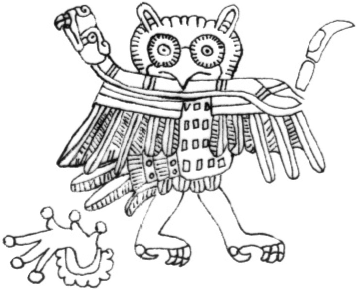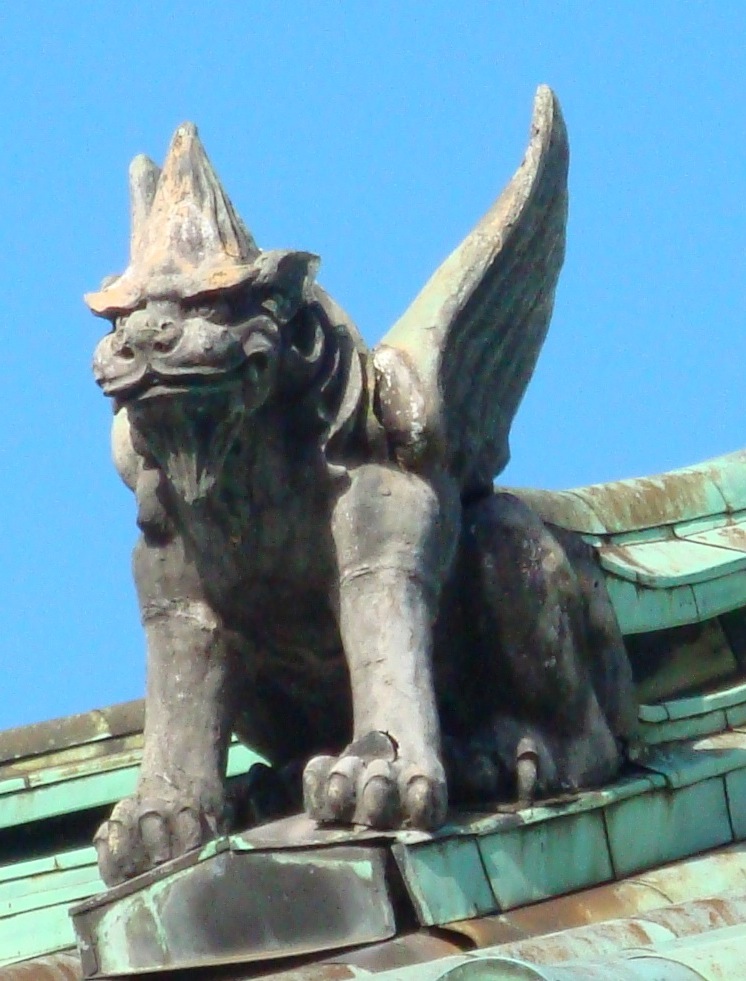
フィリップ・デスコーラ論文(2006)精読のために
Beyond Nature and Culture
(ポータル)

Beyond Nature and Culture
Philippe Descola, フィリップ・デスコラ
| 第1部 「自然」の騙し絵 1.連続体の諸形象 2. 野生と家庭 3. 大分割 第2部 経験の構造 4. 実践の図式 5. 自己との関係/他者との関係 第3部 存在の配置 6. アニミズム再考 7. 存在論としてのトーテミズム 8. ナチュラリズムにとって確かなこと 9. アナロジーの眩暈 10. 項・関係・カテゴリー 第4部 世界の用法 11. 集合の創設 12. 習俗の形而上学 第5部 関係の生態学 13. 繋がりの諸形態 14. 霊魂の交渉 15. 構造の歴史 エピローグ:可能事の目録 |
内容説明 アチュアル族のインディオとの出逢いをきっかけに、地球規模で広がる四つの存在論を横断し、非人間をも包摂する関係性の分類学を打ち立てる—。近代西洋が 発明した「自然/文化」という二分法を解体し、人類学に“転回”をもたらした記念碑的著作。 目次 第1部 「自然」の騙し絵(連続体の諸形象;野生と家庭;大分割) 第2部 経験の構造(実践の図式;自己との関係/他者との関係) 第3部 存在の配置(アニミズム再考;存在論としてのトーテミズム;ナチュラリズムにとって確かなこと;アナロジーの眩暈;項・関係・カテゴリー) 第4部 世界の用法(集合の創設;習俗の形而上学) 第5部 関係の生態学(繋がりの諸形態;霊魂の交渉;構造の歴史) 可能事の目録 |
| Successor to Claude Levi-Strausa
at the College de France, Philippe Descola has become one of the most
important anthropologists working today, and Beyond Nature and Culture
has been a major influence in European intellectual life since its
publication in 2005. Here, finally, it is brought to English-language
readers. At its heart is a question central to both anthropology and
philosophy: what is the relationship between nature and culture?
Culture - as a collective human making, of art, language, and so forth
- is often seen as essentially different than nature, which is
portrayed as a collective of the nonhuman world, of plants, animals,
geology, and natural forces. Descola shows this essential difference to
be, however, not only a specifically Western notion, but also a very
recent one. Drawing on ethnographic examples from around the world and
theoretical understandings from cognitive science, structural analysis,
and phenomenology, he formulates a sophisticated new framework, the
"four ontologies" - animism, totemism, naturalism, and analogism - to
account for all the ways we relate ourselves to nature. By thinking
beyond nature and culture as a simple dichotomy, Descola offers nothing
short of a fundamental reformulation by which anthropologists and
philosophers can see the world afresh. |
フランス大学でクロード・レヴィ=ストローサの後を継いだフィリップ・
デスコラは、現在最も重要な人類学者の一人となり、2005年の出版以来、『自然と文化を超えて』はヨーロッパの知的生活に大きな影響を与えてきた。
2005年の出版以来、『Beyond Nature and
Culture』はヨーロッパの知的生活に大きな影響を与えてきた。その核心は、人類学と哲学の双方にとって中心的な問題である。文化は、芸術や言語な
ど、人間が作り上げる集合体として、植物、動物、地質、自然の力など、人間以外の世界の集合体として描かれる自然とは本質的に異なると見なされることが多
い。しかしデスコラは、この本質的な違いが西洋特有の概念であるだけでなく、ごく最近のものであることを示す。世界各地のエスノグラファーによる事例と、
認知科学、構造分析、現象学からの理論的理解をもとに、彼は洗練された新しい枠組み「4つの存在論」-アニミズム、トーテミズム、ナチュラリズム、アナロ
ジズム-を定式化し、私たちと自然との関わり方すべてを説明する。自然と文化という単純な二分法を超えて考えることで、デスコラは人類学者と哲学者が世界
を新たに見ることができる根本的な再定義に他ならない。 |
| In the society of nature : a
native ecology in Amazonia / Philippe Descola ; translated from
the French by Nora Scott, Cambridge University Press , 1994 . -
(Cambridge studies in social and cultural anthropology, 93) The Achuar Indians live in the remote forest reaches of the Upper Amazon and have developed sophisticated strategies of resource management. Philippe Descola, who has gathered material over several years of fieldwork, documents their rich knowledge of the environment. He explains how this technical knowledge of the increasingly threatened Amazonian ecosystems is interwoven with cosmological ideas that endow nature with the characteristics of society. Combining a symbolist approach with an ecological analysis, the book contributes a new theory of the social construction of nature. General introduction Part I. The Sphere of Nature: 1. The territorial space 2. Landscape and cosmos 3. Nature's beings Part II. On the Proper Use of Nature: 4. The world of the house 5. The world of gardens 6. The world of the forest 7. The world of the river 8. Categories of practice 9. The good life Conclusion. |
アマゾン上流の人里離れた森林地帯に住むインディアンは、高度な資源管
理戦略を発達させてきた。数年にわたるフィールドワークで資料を集めたフィリップ・デスコラは、彼らの環境に関する豊かな知識を記録している。彼は、ます
ます脅かされつつあるアマゾンの生態系に関するこの技術的知識が、自然に社会の特性を付与する宇宙論的思想とどのように絡み合っているかを説明する。象徴
主義的アプローチと生態学的分析を組み合わせた本書は、自然の社会的構築に関する新たな理論に貢献する。 序論 第I部 自然の圏域 1. 領土空間 2. 風景と宇宙 3. 自然の存在 第二部 自然の適切な利用について 4. 家の世界 5. 庭園の世界 6. 森の世界 7. 川の世界 8. 練習のカテゴリー 9. 良き人生 結論 |
| La selva culta,
Simbolismo y praxis en la ecología de los Achuar. Iripi Yakum Descola Prefacio a la edicion en Castellano Prefacio Nota sobre la ortografia Introducción Primera parte: La esfera de la naturaleza El espacio territorial El paisaje y el cosmos Los seres de la naturaleza Segunda parte: hacer, saber, hacer y satisfacer: del buen uso de la naturaleza Introducción El Mundo de la Casa El mundo de los huertos El mundo de la selva El mundo del rio Las categorias de la practica Los Criterios del buen vivir Conclusion Bibliografia Indice de cuadros Indice de figuras Indice de mapas |
リンク
文献
その他の情報
(日本語解説版:一部の欧文文字が文字化 けしています)
Philippe
Descola interviewed by Alan Macfarlane 3rd February 2015
Radcliffe-Brown Lecture in Social Anthropology, 2005 (Proceedings of the British Academy 139, pp.137-155, 2006)
1 A. Barnard, History and Theory in Anthropology (Cambridge, CUP, 2000), p.73.
2 A. R. Radcliffe-Brown, Structure and Function in Primitive Society; essays and addresses (London, Cohen & West, 1952), p. 130.
3 Ph. Descola, ‘Societies of nature and the nature of society’, in A. Kuper (ed.) Conceptualizing Society (London, Routledge, 1992), pp. 107-126, and ‘Constructing natures: Symbolic ecology and social practice’, in Ph. Descola and G. P?lsson (eds.), Nature and Society: Anthropological Perspectives (London, Routledge, 1996), pp. 82-102.
4 For instance, T. Ingold, The Perception of the Environment. Essays in Livelihood, Dwelling and Skill (London, Routledge, 2000) and E. Viveiros de Castro, ‘Os pronomes cosmol?gicos e o perspectivismo amer?ndio’, Mana 2 (2) (1996), pp. 115-144.
5 C. L?vi-Strauss, La pens?e sauvage (Paris, Plon, 1962), pp. 154-155, my translation.
6 True, some non-human species also ascribe properties (at least relational and behavioural features) to humans and other non-humans; but before they can be included in a general theory of ontologies, a lot of ground remains to be covered.
7 I am very grateful to Tim Ingold and Peter Marshall for their insightful comments on an earlier draft of the lecture and for their suggestions of stylistic amendments.
8 E. Husserl, Erste Philosophie (1923-1924) II, Theorie der ph?nomenologischen Reduktion (Martinus Nijhoff, The Hague, 1959), pp. 61-64.
9 P. Bloom, Descartes’ Baby: How the Science of Child Development Explains What Makes Us Human (New York, Basic Books, 2004).
10 E. Viveiros de Castro, ‘Os pronomes cosmol?gicos’, p. 117.
11 J. von Uexku?ll, Streifzu?ge durch die Umwelten von Tieren und Menschen ? Bedeutungslehre (Hamburg, Rowohlt Verlag, 1956).
12 E. Viveiros de Castro, 'Os pronomes cosmol?gicos', p. 117 (my translation).
13 Ibid., p. 122.
14 W. B. Spencer et F. J. Gillen, The Native Tribes of Central Australia (London, Macmillan & Co, 1899), p. 202.
15 C. G. von Brandenstein, Names and Substance of the Australian Subsection System (Chicago, The University of Chicago Press, 1982), p. 54.
16 C. G. von Brandenstein, ‘Aboriginal Ecological Order in the South-West of Australia - Meanings and Examples’, Oceania XLVII (3) (1977), pp. 170-186.
17 M. Granet, La pens?e chinoise (Paris, Albin Michel, 1968 (1934)), p. 297.
18 A point which Viveiros de Castro was the first to make, ‘Os pronomes cosmol?gicos’, p. 129.
19 B. Latour, Nous n’avons jamais ?t? modernes. Essai d’anthropologie sym?trique (Paris, La D?couverte, 1991).
20 K. Århem, ‘The Cosmic Food Web: human-nature relatedness in the Northwest Amazon’, in Ph. Descola and G. P?lsson (eds.), Nature and Society, pp. 185-204.
21 A. R. Radcliffe-Brown, ‘On social structure’, Journal of the Royal Anthropological Institute 70 (1940), pp. 1-12, republished in Structure and Function, p. 190.
22 M. Merleau-Ponty, L’Oeil et l’Esprit (Paris, Gallimard, 1964), p. 13.

東京・湯島聖堂(孔子廟・神農廟)昌平坂学問所にて
Copyleft, CC, Mitzub'ixi Quq Chi'j, 1996-2099
Copyleft, CC, Mitzub'ixi Quq Chi'j, 1996-2099
☆
 ☆
☆